what blood pressure range normal. Here is full define detail of A normal blood pressure level is less than 120/80 mmHg.
What is Blood pressure?
BP is the force of blood pushing against the walls of arteries as the heart pumps blood. When a health care professional measures your BP , they use a BP cuff around your arm that gradually tightens. The results are given in two numbers. The first number, called systolic BP , is the pressure caused by your heart contracting and pushing out blood. The second number, called diastolic BP , is the pressure when your heart relaxes and fills with blood.
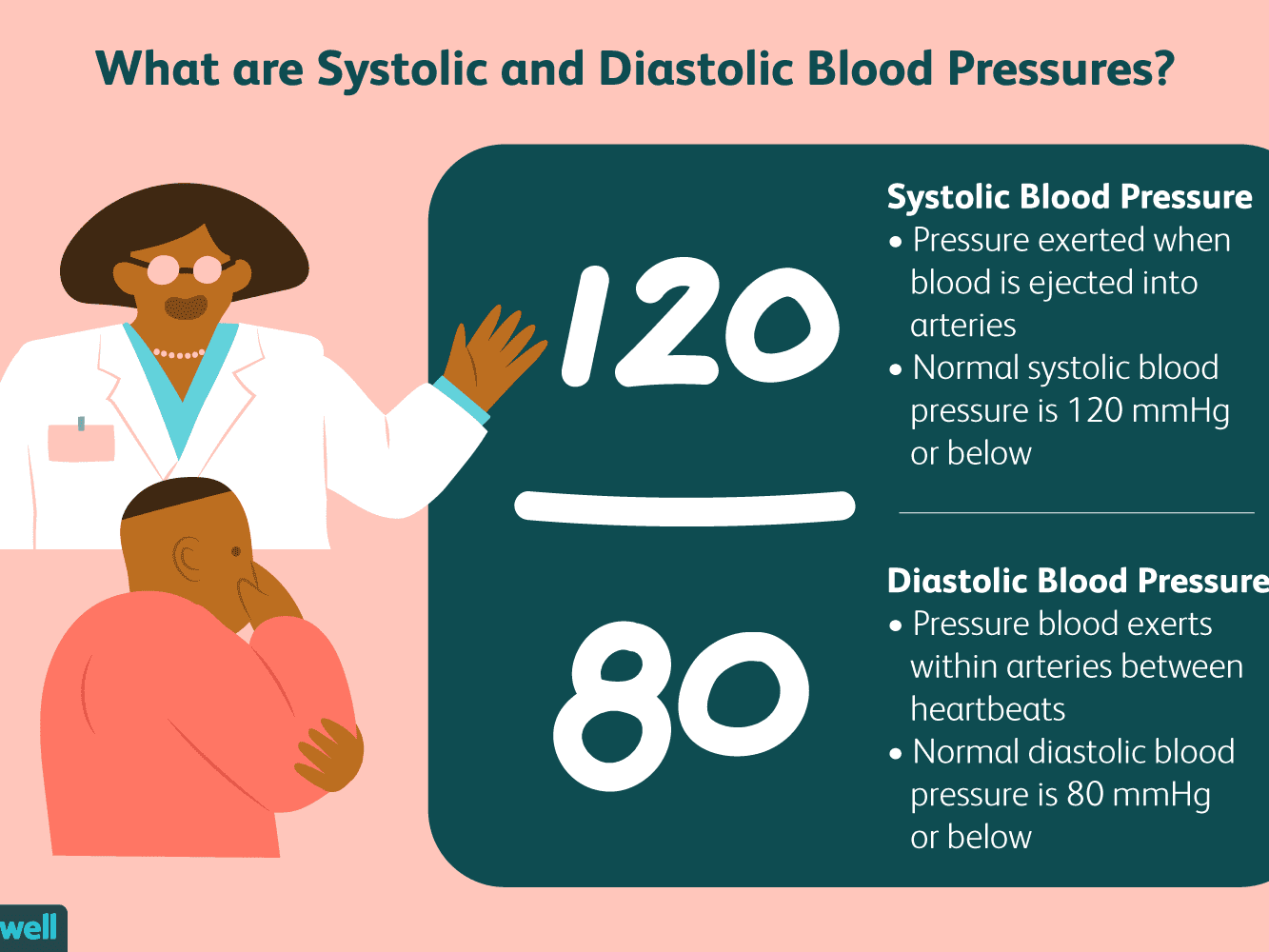
A blood pressure reading is given as the systolic BP number over the diastolic blood pressure number. BP levels are classified based on those two numbers.
Blood pressure is the force applied by the blood over the inner walls of the arteries. Although the average BP for a person remains constant, it shows minor fluctuations throughout the day—declining while relaxing and momentarily increasing while being excited or under stress.
An increase in resting BP can scar, stiffen, or harden the arteries.
- BP is written as systolic and diastolic values.
- Hence, BP 120/80 mm Hg means 120 is the systolic number, and 80 is the diastolic number.
What Does the Systolic Blood Pressure define Number Mean?
When your heart beats, it squeezes and pushes blood through your arteries to the rest of your body. This force creates pressure on those blood vessels, and that’s your systolic BP .
Here’s how to understand your systolic BP number:
- Normal: Below 120
- Elevated: 120-129
- Stage 1 high BP (also called hypertension): 130-139
- Stage 2 hypertension: 140 or more
- Hypertensive crisis: 180 or more. Call 911.
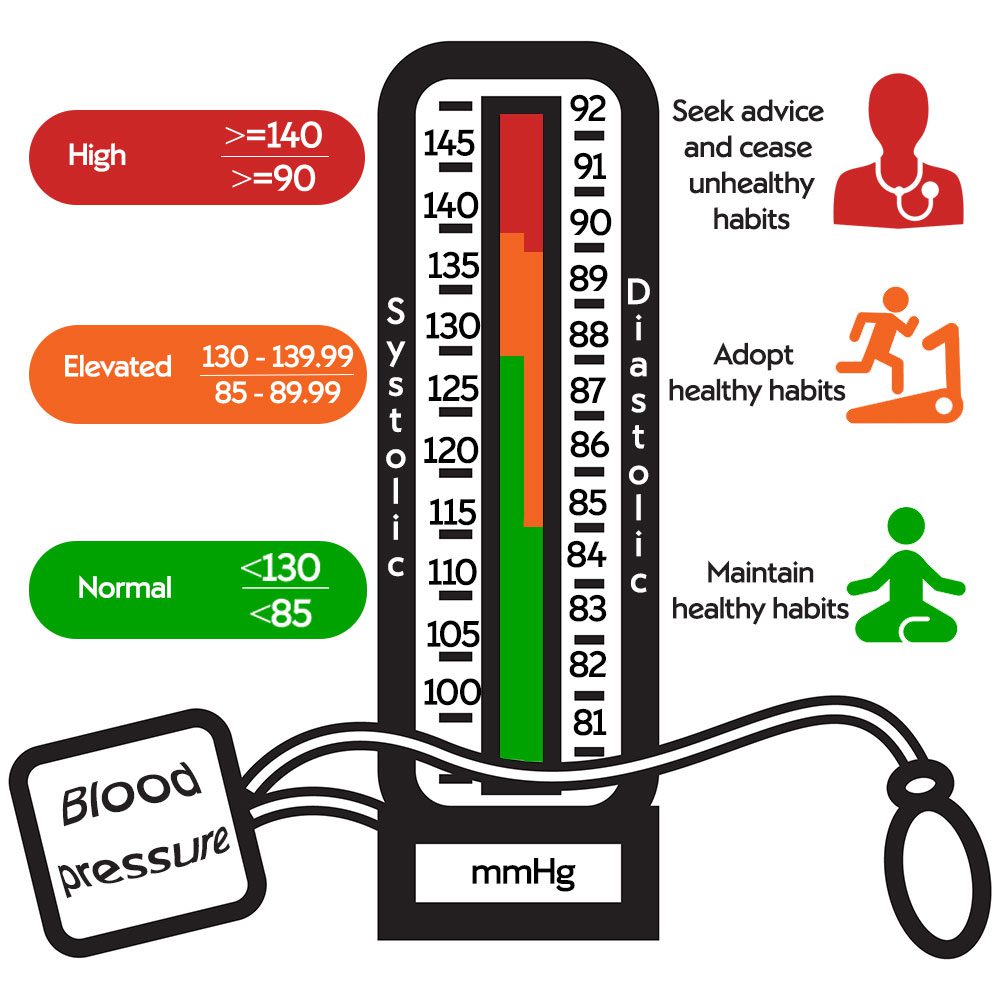
What Does the Diastolic Blood Pressure Number Mean?
The diastolic reading, or the bottom number, is the pressure in the arteries when the heart rests between beats. This is the time when the heart fills with blood and gets oxygen.
This is what your diastolic blood pressure number means:
- Normal: Lower than 80
- Stage 1 hypertension: 80-89
- Stage 2 hypertension: 90 or more
- Hypertensive crisis: 120 or more. Call 911.
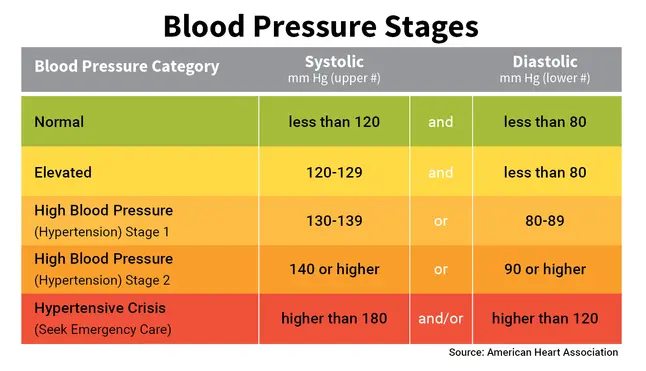 Also read :101+ motivation Quotes in Hindi Motivate You
Also read :101+ motivation Quotes in Hindi Motivate You
What do blood pressure numbers mean?
Blood pressure range normal is measured using two numbers:
The first number, called systolic BP , measures the pressure in your arteries when your heart beats.
The second number, called diastolic BP , measures the pressure in your arteries when your heart rests between beats.
If the measurement reads 120 systolic and 80 diastolic, you would say, “120 over 80,” or write, “120/80 mmHg.”
What are normal blood pressure numbers?
A normal BP level is less than 120/80 mmHg.1
No matter your age, you can take steps each day to keep your blood pressure in a healthy range.
What is high blood pressure (hypertension)?
High BP , Firstly also called hypertension, is BP that is higher than normal. Your BP changes throughout the day based on your activities. Having BP measures consistently above normal may result in a diagnosis of high BP (or hypertension).
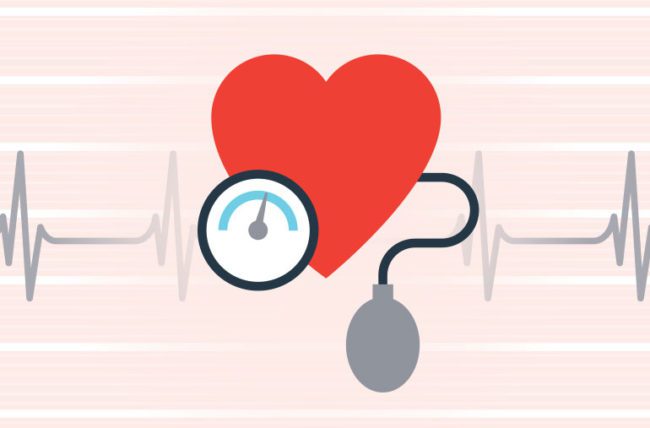
The higher your blood pressure define levels, the more risk you have for other health problems, such as heart disease, heart attack, and stroke.
Your health care team can diagnose high blood pressure define and make treatment decisions by reviewing your systolic and diastolic blood pressure levels and comparing them to levels found in certain guidelines.
The guidelines used to diagnose high blood pressure define range normal may differ from health care professional to health care professional:
- Some health care professionals diagnose patients with high BP if their BP is consistently 140/90 mm Hg or higher.2 This limit is based on a guideline released in 2003, as seen in the table below.
- Other health care professionals diagnose patients with high BP if their BP is consistently 130/80 mm Hg or higher.1 This limit is based on a guideline released in 2017, as seen in the table below.
Also Read :Golden Temple Sri Harmandir Sahib, Amritsar, India
Healthy and unhealthy blood pressure define ranges
Learn what’s considered normal, as recommended by the American Heart Association.
| BLOOD PRESSURE CATEGORY | SYSTOLIC mm Hg (upper number) | and/or | DIASTOLIC mm Hg (lower number) |
|---|---|---|---|
| NORMAL | LESS THAN 120 | and | LESS THAN 80 |
| ELEVATED | 120 – 129 | and | LESS THAN 80 |
| HIGH BLOOD PRESSURE (HYPERTENSION) STAGE 1 | 130 – 139 | or | 80 – 89 |
| HIGH BLOOD PRESSURE (HYPERTENSION) STAGE 2 | 140 OR HIGHER | or | 90 OR HIGHER |
| HYPERTENSIVE CRISIS (consult your doctor immediately) | HIGHER THAN 180 | and/or | HIGHER THAN 120 |
Blood Pressure Ranges
If you have normal BP , your BP is less than 120/80. Stick with an active lifestyle and healthy diet to keep that going.
Is your BP above the normal range, in either or both systolic and diastolic levels? Your doctor will want to have more than one blood pressure reading before diagnosing hypertension.
Treatments include lifestyle changes, BP define and if that’s not enough, may also include medications.

Lifestyle changes include:
- BP define Cutting back on sodium. Ask your doctor what your daily sodium limit should be. Read the Nutrition Facts label on food products.
- Getting more exercise. Studies show benefits with 3-4 sessions per week, each lasting 40 minutes, of aerobic exercise (the kind that makes your heart beat faster).
- Losing weight, if you’re overweight. You can expect to shave about 1 point off your BP numbers for each pound lost.
- Eating a healthy diet. The DASH diet is designed to improve BP . DASH stands for Dietary Approaches to Stop Hypertension. It favors vegetables, fruits, whole grains, low-fat dairy, poultry, fish, and chicken.
- Limiting alcohol to no more than one drink a day for women or two for men.
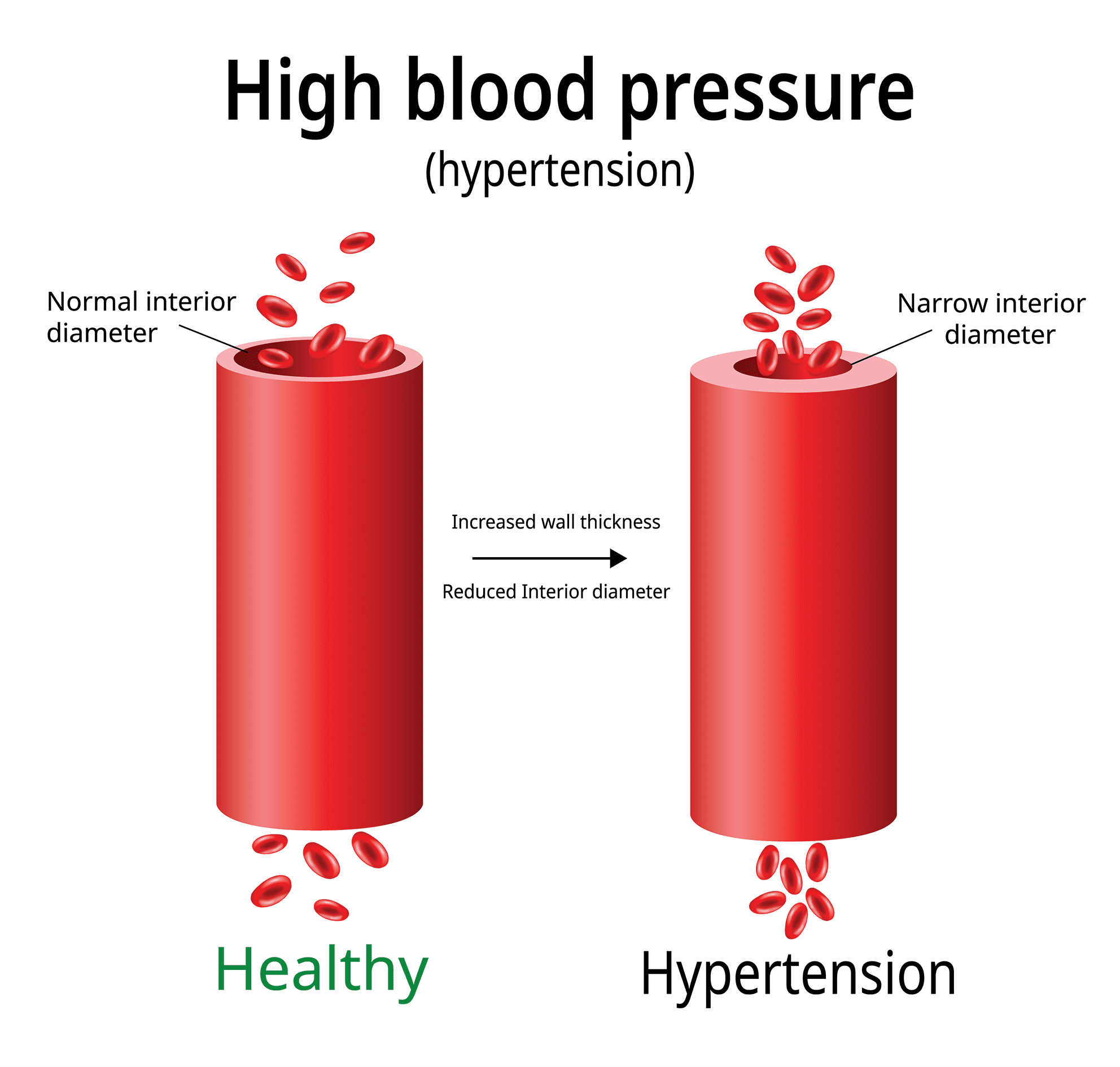
BP categories
The five BP define
BP ranges as recognized by the American Heart Association are:
Normal
BP numbers of less than 120/80 mm Hg are considered within the normal range. If your results fall into this category, stick with heart-healthy habits like following a balanced diet and getting regular exercise.
Elevated
Elevated BP is when readings consistently range from 120-129 systolic and less than 80 mm Hg diastolic. Similarly People with elevated BP are likely to develop high BP unless steps are taken to control the condition.
Hypertension Stage 1
Hypertension Stage 1 is when BP consistently ranges from 130-139 systolic or 80-89 mm Hg diastolic. For instance At this stage of high BP, doctors are likely to prescribe lifestyle changes and may consider adding BP medication based on your risk of atherosclerotic cardiovascular disease (ASCVD), such as heart attack or stroke.
Hypertension Stage 2
Hypertension Stage 2 is when BP consistently ranges at 140/90 mm Hg or higher. At this stage of high BP , doctors are likely to prescribe a combination of BP medications and lifestyle changes.
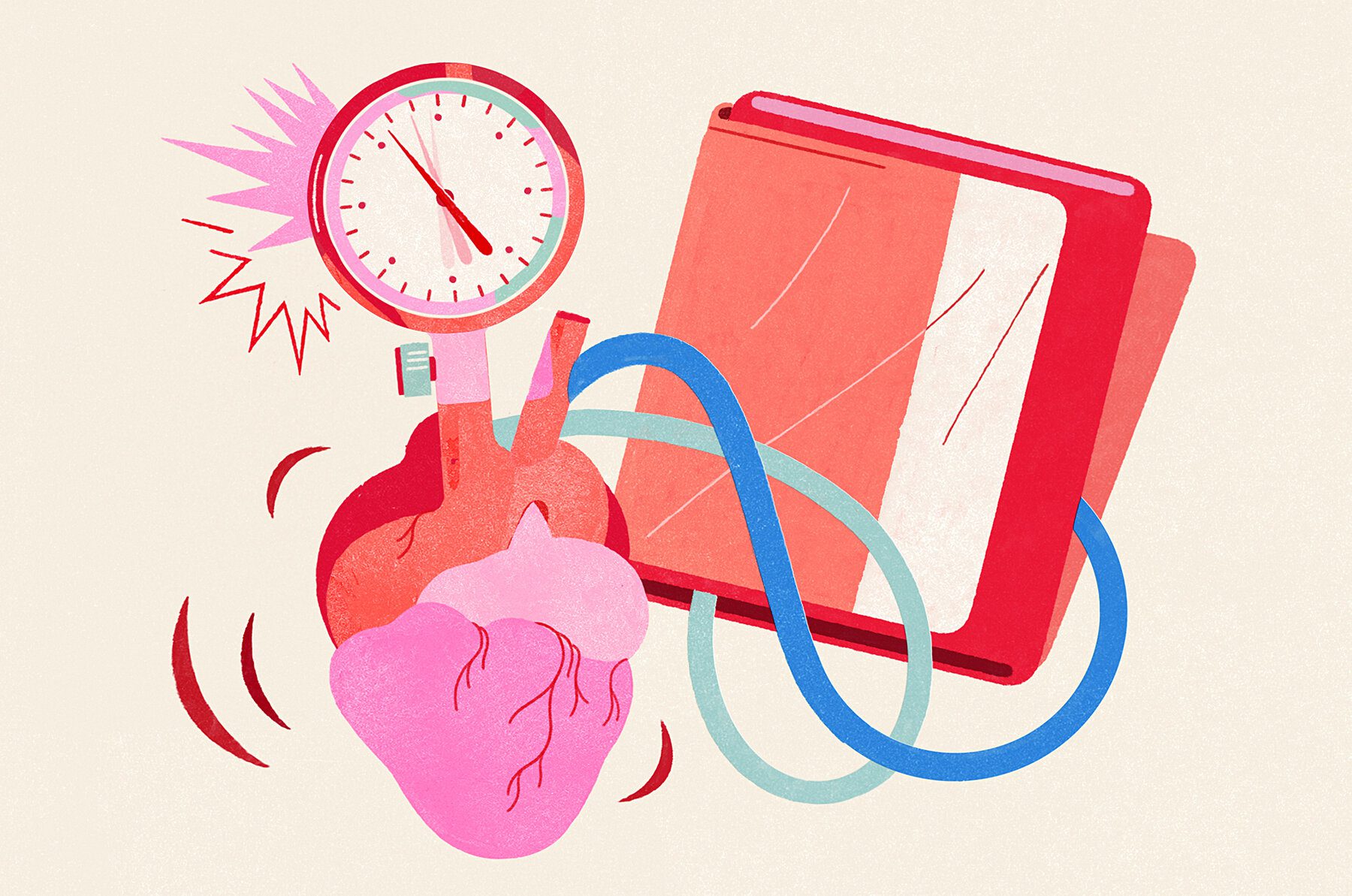
Hypertensive crisis
This stage of high BP requires medical attention. Moreover, If your BP readings suddenly exceed 180/120 mm Hg, wait five minutes and then test your BP again. If your readings are still unusually high, contact your doctor immediately. You could be experiencing a hypertensive crisis.
If your BP is higher than 180/120 mm Hg and you are experiencing signs of possible organ damage such as chest pain, shortness of breath, back pain, numbness/weakness, change in vision or difficulty speaking, do not wait to see if your pressure comes down on its own. Call 911.
Your BP numbers and what they mean
Your blood pressure is recorded as two numbers:
- Systolic blood pressure (the first number) – So indicates how much blood pressure range normal your blood is exerting against your artery walls when the heart beats.
- Diastolic blood pressure (the second number) – Secondly indicates how much pressure your blood is exerting against your artery walls while the heart is resting between beats.
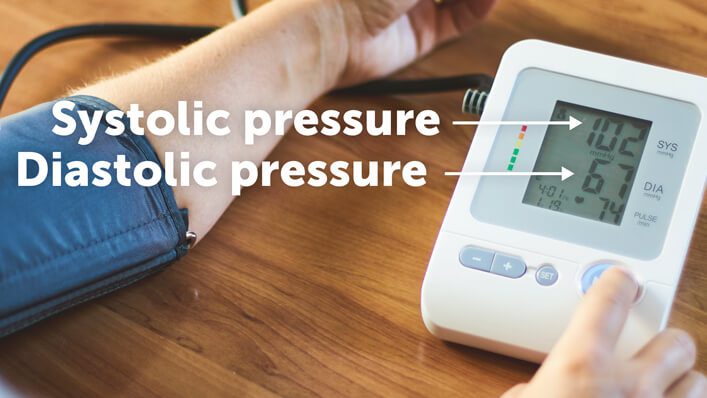
Which number is more important?
Typically, more attention is given to systolic BP (the first number) as a major risk factor for cardiovascular disease for people over 50. In most people, systolic BP rises steadily with age due to the increasing stiffness of large arteries, long-term buildup of plaque and an increased incidence of cardiac and vascular disease.
However, either an elevated systolic or an elevated diastolic BP reading may be used to make a diagnosis of high BP . Similarly According to recent studies, the risk of death from ischemic heart disease and stroke doubles with every 20 mm Hg systolic or 10 mm Hg diastolic increase among people from age 40 to 89.
Why BP is measured in mm Hg
The abbreviation mm Hg means millimeters of mercury. Mercury was used in the first accurate pressure gauges and is still used in medicine today as the standard unit of measurement for pressure.
Taking your pulse versus checking your BP
While both are indications of health, BP define So and heart rate (pulse) are two separate measurements. After that Learn more about the difference between and heart rate.






